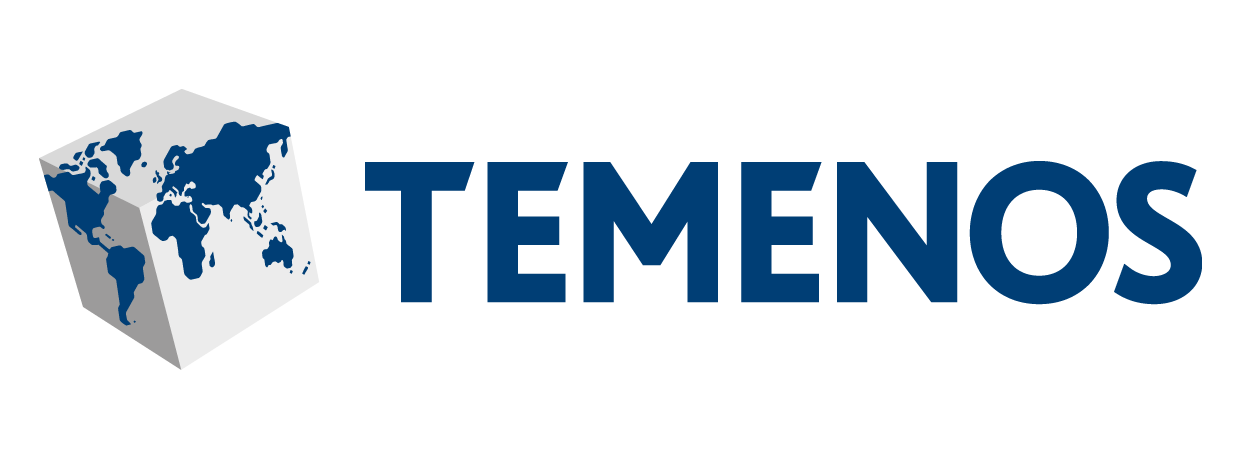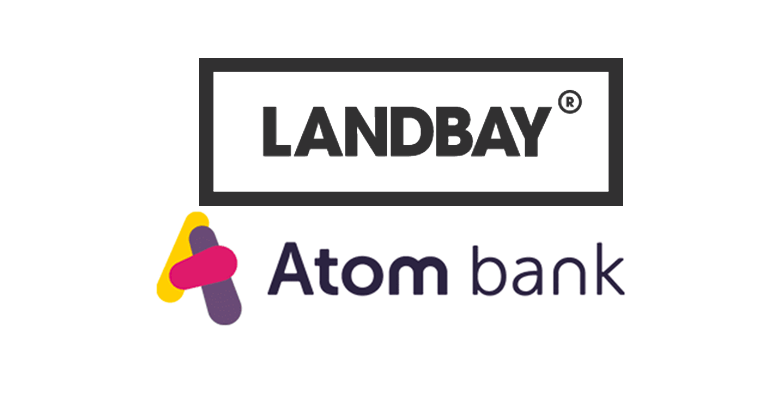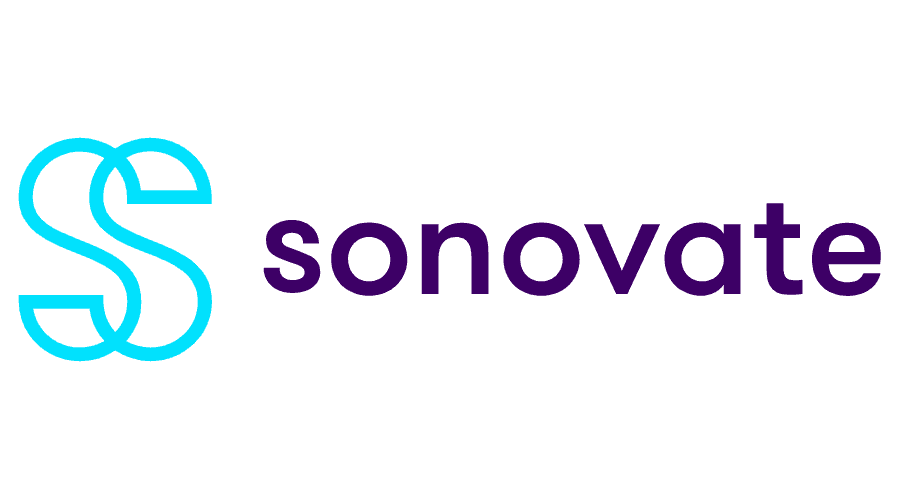Published
- 07:00 am

London-based PitchSpace unveils global tech partnership as it prepares to launch investment round
A new technology-driven platform that aims to create a ‘frictionless capital market’ by helping company founders’ pitch their business to potential investors has launched today. PitchSpace is a London-based start-up company that will support other start-ups by developing effective investment pitching. The platform uses specially designed algorithms that require only a few hours of input from company founders to produce a fully automated pitch deck, executive summary and investor messages to help them secure external investment capital for their businesses.
PitchSpace was founded by Serkan Ferah and John Auckland, who have worked together since 2016, helping hundreds of start-ups raise millions in growth investment funding. They created the platform after realising many company founders struggled to prepare a compelling investor pitch, which often took several weeks of their time. Meanwhile, investors have been frustrated with the quality of many pitches they attend, which often lack essential details that drive their decision to invest.
After developing its unique founder and investor focused technology, PitchSpace was offered to four start-up companies to use in a pilot. A group of business angels who witnessed it in use were so impressed they immediately offered to invest in the platform. In just four months, nearly 300 start-up companies have signed up to use the Beta version of PitchSpace, which is currently being offered free of charge, with the aim in year one of reaching 1,000.
The company is due to launch its investment round later this year, aiming to raise funds to help further develop its technology to create a ‘frictionless capital market’ by matching start-ups with ideal investors and automating deal workflows end-to-end.
PitchSpace has also announced its first global partnership with Dubai-based Sandbox, a founder-focused start-up programme that supports early-stage technology entrepreneurs. Under the agreement, the PitchSpace platform will be offered to the start-up cohort of Sandbox and promoted to more than 1,000 start-ups that are part of its Dubai parent organisation, DTec. PitchSpace will also run a series of workshops with cohort companies in the region to help enhance their investment pitch and better engage with investors.
PitchSpace co-founder Serkan Ferah commented: “PitchSpace is a great example of innovation born out of frustration. After being inundated by start-up founders who needed help to prepare their pitch to investors, we soon realised there was nothing available in the market, so we designed our own solution using innovative technology. We have now developed a Beta platform that enables company founders to build better quality pitches using far less time and resources, covering the core areas which investors require and ultimately helping more businesses secure investment.
“The initial engagement from both the start-up and investment community has been phenomenal as witnessed by the numbers of companies signing up to use our platform and the interest we’ve generated from strategic partners and investors. Through our forthcoming fundraise, we aim to take our technology to an even higher level by connecting ideally matched companies with investors within a frictionless capital market.”
Related News
- 02:00 am

The relationship will speed up the time it takes for merchants to start trading online as they transition to digital business models following the pandemic
Cashflows, the platform that makes it easy for merchants to accept payments, has, today, announced a partnership with digital commerce platform, BigCommerce, a leading open SaaS commerce platform for fast-growing and established brands. Cashflows’ Hosted Payment Page (HPP) and Gateway API have been integrated into BigCommerce to enable merchants to move online and accept payments more efficiently. It is a partnership that aims to make eCommerce simple, flexible, and future-proof.
Online retailers will be able to connect to the Cashflows Gateway quickly and easily, facilitating online payments without necessarily needing a developer or an in-house IT team. This solution can, therefore, dramatically reduce the time it takes for businesses to begin trading online. BigCommerce’s built-in reporting system automatically syncs with Cashflows’ gateway, meaning that retailers can seamlessly measure and track payments on their e-commerce platform. All payment data will be captured by the Cashflows Gateway, reducing the PCI DSS burden on merchants and supporting card security whilst maintaining a smooth payment experience.
In addition, the Click and Play feature through both the Cashflows Portal and the BigCommerce App Store means that additional features and services can be enabled automatically, offering flexibility as merchants’ needs evolve. The combination of BigCommerce’s open SaaS technology and Cashflows’ innovative, modern payments platform will give merchants access to a payments system that can respond and adapt rapidly to changing market conditions and trends.
Commenting on the partnership, Cashflows’ CCO Francesco Tirelli said: “Everything we do is designed to make it easier for businesses to trade, and in that, we realised a common mission with BigCommerce. Through the pandemic, we have witnessed a revolution in the way people shop, with eCommerce finally tipping over into the mainstream. As one of the leading Open SaaS providers, BigCommerce is offering a critical service to retailers and other businesses as they transition to new, digital business models. Via this partnership, we will work in tandem with them to make it even easier for businesses to begin trading and prospering online, therefore supporting the UK’s post-Covid economic recovery.”
“Our partnership with Cashflows further illustrates our commitment to providing merchants access to the highest-calibre technologies and service providers available in the industry,” said Jim Herbert, GM and vice president of BigCommerce, EMEA. “Cashflows shares our desire to help merchants sell more and grow faster to maximize success, and we look forward to working together to mutually support customers.”
Related News
- 02:00 am

New report from PayU LatAm showcases significant growth in its user base with strong performance across financial institutions, telecommunications and other critical sectors
Amsterdam, Netherlands - 4th November, 2021: PayU, the fintech and e-payments business of Prosus, today launches its report titled “Ecommerce in Latin America,” highlighting its Latin America business has seen a 400% increase in payments processing in the last three years. With the Covid-19 pandemic influencing consumer shopping habits, e-commerce growth has seen significant and sustained growth across Latin America, positioning the region as one of the most attractive for retailers worldwide.
Francisco León, General Director of PayU Latin America shares: “Although we are not yet over the pandemic, PayU views the e-commerce landscape with great optimism. We saw thousands of businesses adapt quickly towards digital alternatives, not only enabling successful digital offerings, but also experiencing growth at a surprising pace. Our customers, through our platform, have been able to expand their market reach globally thanks to our presence in more than 50 countries around the world.”
With more than half of the Latin American population expected to enter the banking system by the end of 2021, PayU has seen record growth as consumers increasingly turned to online shopping throughout the pandemic.
PayU’s monthly buyer base in Colombia has grown by 49% from 2020 to 2021, with the e-commerce market growing by 19% in 2019, 46% in 2020, and 19% between January and August 2021.
In Brazil PayU recorded a 71% growth compared to 2019. Forecasts for 2021 are predicting a 61% growth across 47m transactions compared to 2020.
E-commerce in Mexico has been growing steadily through PayU in recent years, with an annual sales growth of 50% in 2019, 41% in 2020, and 19% so far in 2021.
PayU Argentina has not only expanded its user base, but also generated a wider use of online transactions. In 2020, the country billed $255m through PayU, representing an increase of 118% compared to 2019. So far in 2021, PayU Argentina has already generated a processing volume of $356m.
Peru processed $8m in 2015, and by the end of August 2021, the country had already processed more than 27m transactions totalling $486m.
In the last three years, PayU has contributed to the sustained expansion of e-commerce in Chile, recording sales growth of 127% in 2019, 182% in 2020, and 317% between January to August 2021.
With the Latin American market representing a huge opportunity for global retailers, PayU’s integration capabilities ensure secure transactions, while offering the best customer experience and offers that are tailored to new and emerging consumer habits. PayU’s technology enables merchants to process more than 600 transactions per second, putting it as the preferred platform for over 40,000 merchants across the region.
Related News
- 07:00 am

The Sidemen star joins payments fintech to accelerate the adoption of account to account payments amongst creators, streamers and side-hustlers
VibePay, the company driving the next evolution of payments, has today announced Vikram “Vikkstar” Barn, Sidemen member and YouTuber with 7.4 million subscribers, has joined the business as a shareholder and partner, marking a major step in making account to account payments to go-to way the creator economy, streamers and side-hustlers pay and get paid.
The partnership between Vikkstar, one of the biggest content creators in the world, and VibePay, the pioneer in payments and Open Banking, sees a first-of-its kind deal with the UK-based streamer becoming a part-owner of the business, signalling a new role creators and influencers can play in the ownership structure of fintechs. As a leading light for the next generation of young entrepreneurs, Vikkstar will be influential in shaping VibePay’s product and building its brand as the business serves the booming creator economy and continues its mission to be Europe’s answer to WeChat and CashApp.
Luke Massie, CEO of VibePay, said: “Bringing Vik into the VibePay journey at this exciting moment is going to help us to drive success amongst creators just like him. As he has built a huge solo following across multiple platforms, and is part of one of the biggest online collectives there is in The Sidemen, we couldn’t ask for more in terms of insight across online communities and what the entrepreneurs of tomorrow need. We believe this strategy of offering influencers part-ownership will be the business model of the future to drive growth and increase brand awareness.”
Bringing VibePay Pro to creators, streamers and small businesses
VibePay, which offers instant payments, no fees, as well as offering creators and social entrepreneurs the ability to interact with their end-audiences, is accelerating its journey to launching VibePay Pro and Vikkstar will be central in developing this offering. VibePay Pro will support creators, streamers, side-hustlers and small businesses who have multiple income streams in managing their payments and customer community. Sitting close to the strategic development of the product and brand, Vikkstar will assist VibePay in delivering on its mission to build an ecosystem where payments create more value for those making and receiving payments on a daily basis.
Vikram “Vikkstar” Singh Barn said: “VibePay is a brand that I have long been a fan of as a creator and businessman. With our community still being burnt by the middleman when it comes to payments, VibePay solves a genuine problem and brings a new set of features that I believe will transform how we, as creators, engage with our audiences in the future. Having watched the likes of WeChat in Asia and CashApp in the US gain so much popularity, I see so much potential in VibePay becoming Europe's equivalent. I can’t wait to help shape the future of VibePay and be part of a business that is revolutionising the payments industry and taking on the out-dated, traditional players.”
Luke Massie added: “With the VibePay app already on the market, we are moving quickly towards the launch of VibePay Pro, which will transform the offering available to sellers and businesses. This follows our Channels launch that shines a light on the post-transactional experience and adds a new engaging dimension to payments, enabling users to interact with customers, fans and subscribers in the same place payment is made. We can’t wait to work with Vik and fine tune what we offer, elevating VibePay as a leader in the European market.”
Related News
- 03:00 am

Temenos Infinity will power new AI-enabled digital banking services for MyState Bank’s retail and small-to-medium enterprise (SME) customers to deliver a fast and frictionless user experience
Temenos (SIX: TEMN), the banking software company, today announced that MyState Bank in Australia has selected Temenos Infinity powered by The Temenos Banking Cloud to transform its mobile and internet banking. Temenos’ digital banking platform will help MyState Bank accelerate growth by streamlining digital onboarding and origination, as well as making banking faster and easier to use.
Headquartered in Hobart, Tasmania, MyState Bank is a respected and established challenger brand with approximately AU$6b in assets, 350 employees, and 150,000 customers. Earlier this month, MyState Bank placed sixth in the Australian Financial Review (AFR) BOSS Innovation Awards for the banking, superannuation and financial services category. More than 700 businesses competed for the AFR BOSS awards in 10 categories.
With a desire to expand its national footprint and a competitive banking environment, MyState Bank has turned to Temenos Infinity to deliver seamless, end-to-end digital customer journeys that will differentiate its offering and accelerate customer growth.
Like most banks, MyState has seen an uptick over the past 12-months in demand for its internet and mobile banking, with 71% of customers registered for internet banking and 94% of transactions digitally completed.
With the shift to digital channels, the customer experience is the new battleground. According to an Economist Intelligence Unit report for Temenos, four in five bankers believe that banks will seek to differentiate on customer experience rather than products. Improving customer experience and engagement, including personalisation and intimacy, was the top strategic priority of 30% of banking executives surveyed.
For MyState Bank, Temenos Infinity will enable retail and SME customers to open a new account in minutes, make instant payments and manage their spending and saving with AI-enabled tools – all via a simple, intuitive interface.
MyState Bank will access Temenos Infinity using The Temenos Banking Cloud, Temenos’ next-generation SaaS. More than 3,000 financial services institutions worldwide rely on Temenos’ modern, open, cloud technology. The Temenos Banking Cloud enables banks and businesses to consume, manage and maintain banking services in a secure, continually evolving, self-service platform.
Melos Sulicich, Managing Director and CEO, MyState Limited, commented: “Replacing our digital banking platform with Temenos Infinity will enable us to design and deliver exceptional customer experiences with a human touch. In evaluating new digital banking platforms, Temenos impressed us with the modern, fast, frictionless user experience as well as its track-record with other leading banks in Australia. MyState’s growth strategy is to scale-up via a strong digital and AI-enabled offering across the country. The Temenos platform will ensure a world-class user experience, providing easy and convenient access to all our digital banking services.”
Jean-Paul Mergeai, President – International Sales, Temenos, commented: “We are delighted to be selected by MyState Bank to transform its digital banking services. Temenos is seeing strong demand in the Australian market with incumbent and challenger banks choosing our digital banking platform and the Temenos Banking Cloud. With Temenos, MyState Bank can lead the way in digital customer experience while benefiting from an open, cloud banking platform to drive rapid innovation.”
Temenos Infinity is the world’s best-selling digital banking platform (IBS Intelligence Sales League Table 2021) used by over 650 financial institutions, from global tier one banks to digital challengers. The platform is rated as the only ‘best-in-class’ solution in the Aite Matrix Evaluation: US Digital Banking Engagement of Core Banking Providers 2021. It was also recently named a leader in two key reports – The Forrester Wave™: Digital Banking Engagement Platforms and Digital Banking Engagement Hubs evaluations for Q3 2021.
Related News
- 06:00 am

Atom bank and Landbay have entered into an origination and funding partnership worth up to £500million. Atom bank is the UK’s first app-based bank, while Landbay is a leading marketplace lending platform for buy-to-let mortgages.
The partnership between the two fast-growing tech companies will see the Durham-based fintech fund up to £500m of Landbay’s prime residential buy-to-let mortgages, providing Atom with access to the £280bn buy-to-let market. The partnership will utilise Landbay’s award-winning, technology-enabled lending platform and extensive broker distribution network.
With Atom already offering both prime and near prime residential mortgage products, it has seen very strong growth as a result of competitive rates and high levels of customer service and has recently surpassed £3bn of mortgage completions since launch in 2016.
The expansion into buy-to-let lending via Landbay is the first in a series of planned partnerships for Atom. It will form part of a programme that broadens Atom’s access through distribution partners to new areas of the market.
David McCarthy, Chief Financial Officer at Atom bank, said: “Atom has its sights set on growth, return and customer excellence. Our rapid growth over the past few years has been built on strong risk management, a low cost of funding and slick processing. Partnerships with specialist originators of the quality of Landbay complement our existing portfolio of products and provide us with access to new markets.
“Landbay is an ideal partner for us - not only do they share Atom’s values and a focus on an exceptional customer experience, but they’re supported by strong technology and are committed to providing market-leading products and services.”
John Goodall, Chief Executive Officer at Landbay, said: “This partnership with Atom will help us at Landbay to extend our reach in the buy-to-let market and broaden our offering to brokers and landlords. In Atom we have a partner which shares our values and passion for improvements through technology.
“This partnership reinforces the growing reputation Landbay has for originating and managing buy-to-let mortgages at scale for our institutional partners. It also ensures that we can continue to expand our competitive buy-to-let mortgage offering and will help to further accelerate our growth over the coming years.”
Related News
- 05:00 am

| Strong third quarter with operating result of €472m and net result of €403m |
| ● | Revenues after nine months at €6.36bn (9M 2020: €6.16bn) |
| ● | Risk result of minus €257m (9M 2020: minus €1.1bn) |
| ● | Net result of €9m after nine months despite restructuring expenses of €1.05bn (9M 2020: minus €168m) |
| ● | Comfortable capital base with Common Equity Tier 1 ratio of 13.5% |
After a strong third quarter, Commerzbank expects a positive net result for the full year. The operating result for the third quarter amounted to €472 million and has consequently increased almost threefold compared with the previous-year quarter. Over the first nine months, the Bank generated an operating profit of more than €1 billion. With a Common Equity Tier 1 ratio (CET 1 ratio) of 13.5%, the Bank continues to have a solid foundation for the transformation.
Commerzbank made further progress in implementing its “Strategy 2024”, most importantly with the transformation to become a digital advisory bank. In October, the first centralised advisory centres started operating. By the end of the year, around 750,000 customers from closed branches are to receive advisory services from the three locations in Berlin, Quickborn, and Düsseldorf. A digital signature was launched in the Corporate Clients segment and is now being gradually expanded. Furthermore, Commerzbank was recently awarded the title of Germany’s most secure online bank.
Commerzbank confirmed its strong customer focus, being ranked once again as the leading trade finance bank for German companies. The Bank also continued to make progress with its sustainability targets. New business for green mortgage loans amounted to around €1.2 billion in the third quarter, meaning that they accounted for more than one quarter of business volume for new mortgages.
The Bank consistently pursued the strategic goal of higher profitability and achieved additional milestones in this process. After the successful implementation of the voluntary programme, more than half of the necessary personnel reduction has already been achieved in a socially responsible way. On the journey to a sustainably profitable bank, around 10,000 full-time positions are to be cut by 2024. In order to cushion the effects of the low-interest environment, the Bank reduced the allowance for pricing of high deposits from €100,000 to €50,000.
“The implementation of our strategy is proceeding according to plan and the operating business is also developing well. Despite the restructuring expenses, we are anticipating a positive net result for the full year,” said Manfred Knof, Chairman of the Board of Managing Directors of Commerzbank.
In the third quarter, Commerzbank generated solid revenues amounting to €2,006 million (Q3 2020: €2,033 million). Underlying net commission income rose by around 7% to €873 million. The main factors contributing to this were the securities business of Private and Small-Business Customers as well as the trade finance and payments businesses of Corporate Clients. Underlying net interest income decreased to €1,146 million (Q3 2020: €1,226 million). However, in the Private Customers business in Germany, net interest income increased by more than 2%, as higher contributions from lending business and the expansion of pricing for high deposits had a positive effect.
In the third quarter, the risk result of only minus €22 million was at a significantly lower level than in the previous year (Q3 2020: minus €272 million). The ratio of non-performing exposure (NPE ratio) remained unchanged at the low level of 0.8% (end of June 2021: 0.8%). Both values confirm the high quality of the Bank’s loan portfolio. The additional provision booked for the expected effects of the coronavirus pandemic in the past year – the top-level adjustment – amounted to €496 million at the end of September. Overall, it remained on an almost unchanged level in comparison with the previous quarter.
The Bank reduced total costs in the third quarter by around 5% year-on-year. In the first nine months, the costs amounted to €5,061 million (9M 2020: €4,996 million). These included a one-time write-off in the second quarter for the termination of the outsourcing project for securities settlement amounting to €200 million. Despite additional investments in digitalisation, IT, infrastructure and regulatory issues, the Bank managed to reduce operating costs, excluding the one-time write-off, by 2% to €4.458 million in the first nine months. The compulsory contributions at €402 million were also lower year-on-year (9M 2020: €445 million).
The operating profit went up in the third quarter to €472 million (Q3 2020: €168 million). After deduction of restructuring expenses totalling €76 million and after taxes and minority interests, the consolidated profit attributable to Commerzbank shareholders amounted to €403 million (Q3 2020: minus €60 million).
The Common Equity Tier 1 ratio (CET 1 ratio) increased slightly and was 13.5% at the end of September 2021 (end of June 2021: 13.4%). The buffer to the regulatory requirement (MDA threshold) of currently 9.4 % increased to around 410 basis points. At the end of September, the risk-weighted assets came down to around €175 billion (end of June 2021: €178 billion). RWA efficiency continued to improve.
“The figures for the third quarter are very encouraging. We achieved solid revenues while risk provisions remained at a low level, and we have our costs under control. Our capital ratio stays strong. This progress is giving us a tailwind,” commented Bettina Orlopp, Chief Financial Officer of Commerzbank.
Development of the segments
The Private and Small-Business Customers segment posted further growth in loans and securities in the third quarter. The year-on-year volume in Germany increased further, by around 20% to the current total of €325 billion. The growth in securities of around €3.6 billion compared with the previous quarter was almost entirely attributable to inflows of €3 billion net new money. The development of the mortgage business continued to be strong and grew by 7% to around €90 billion year-on-year. As a result of this, the loan volume increased by more than €2 billion to €119 billion compared with the previous quarter. The introduction of pricing on high deposits continued. Private customer deposits amounting to €16 billion have already been priced.
Overall, the Private and Small-Business Customers segment succeeded in increasing its underlying revenues by 5% to €1,219 million (Q3 2020: €1,163 million) in the third quarter. Business with private customers in Germany posted a year-on-year increase in revenues of 8% in the third quarter. Additional provisions of mBank amounting to €95 million for the Swiss francs loan portfolio had a negative impact. Supported by a risk result of €1 million, the operating result for the segment increased to €299 million in the third quarter (Q3 2020: €83 million).
In the Corporate Clients segment, underlying revenues in the third quarter decreased to €766 million (Q3 2020: €794 million) in line with the strategic realignment. While the Mittelstand and Institutionals divisions succeeded in slightly increasing their underlying revenues, they slightly decreased in the International Corporates division. Overall, the segment improved its operating profit to €221 million (Q3 2020: €73 million). In addition to lower costs, the segment benefited from a low risk result of minus €29 million (Q3 2020: minus €120 million). The segment’s risk-weighted assets (RWA) came down by €14 billion year-on-year and amounted to €79.5 billion at the end of September.
Outlook
The outlook for the full year continued to improve in the third quarter. Revenues in the full year 2021 will exceed the previous year’s. The Bank is targeting operational costs of around €6.5 billion. The one-time write-off of €200 million in the second quarter is in addition to this. The Bank is now expecting a risk result of less than €700 million. Overall, the Bank expects a positive operating result and a net profit for the full year. The Common Equity Tier 1 ratio is expected to be around 13.5% at year end – well above the targeted buffer of 200 to 250 basis points above MDA. The expectations are based on the assumption that there will be no fundamental change affecting the Swiss francs loan portfolio at mBank.
| Strong third quarter with operating result of €472m and net result of €403m |
| ● | Revenues after nine months at €6.36bn (9M 2020: €6.16bn) |
| ● | Risk result of minus €257m (9M 2020: minus €1.1bn) |
| ● | Net result of €9m after nine months despite restructuring expenses of €1.05bn (9M 2020: minus €168m) |
| ● | Comfortable capital base with Common Equity Tier 1 ratio of 13.5% |
After a strong third quarter, Commerzbank expects a positive net result for the full year. The operating result for the third quarter amounted to €472 million and has consequently increased almost threefold compared with the previous-year quarter. Over the first nine months, the Bank generated an operating profit of more than €1 billion. With a Common Equity Tier 1 ratio (CET 1 ratio) of 13.5%, the Bank continues to have a solid foundation for the transformation.
Commerzbank made further progress in implementing its “Strategy 2024”, most importantly with the transformation to become a digital advisory bank. In October, the first centralised advisory centres started operating. By the end of the year, around 750,000 customers from closed branches are to receive advisory services from the three locations in Berlin, Quickborn, and Düsseldorf. A digital signature was launched in the Corporate Clients segment and is now being gradually expanded. Furthermore, Commerzbank was recently awarded the title of Germany’s most secure online bank.
Commerzbank confirmed its strong customer focus, being ranked once again as the leading trade finance bank for German companies. The Bank also continued to make progress with its sustainability targets. New business for green mortgage loans amounted to around €1.2 billion in the third quarter, meaning that they accounted for more than one quarter of business volume for new mortgages.
The Bank consistently pursued the strategic goal of higher profitability and achieved additional milestones in this process. After the successful implementation of the voluntary programme, more than half of the necessary personnel reduction has already been achieved in a socially responsible way. On the journey to a sustainably profitable bank, around 10,000 full-time positions are to be cut by 2024. In order to cushion the effects of the low-interest environment, the Bank reduced the allowance for pricing of high deposits from €100,000 to €50,000.
“The implementation of our strategy is proceeding according to plan and the operating business is also developing well. Despite the restructuring expenses, we are anticipating a positive net result for the full year,” said Manfred Knof, Chairman of the Board of Managing Directors of Commerzbank.
In the third quarter, Commerzbank generated solid revenues amounting to €2,006 million (Q3 2020: €2,033 million). Underlying net commission income rose by around 7% to €873 million. The main factors contributing to this were the securities business of Private and Small-Business Customers as well as the trade finance and payments businesses of Corporate Clients. Underlying net interest income decreased to €1,146 million (Q3 2020: €1,226 million). However, in the Private Customers business in Germany, net interest income increased by more than 2%, as higher contributions from lending business and the expansion of pricing for high deposits had a positive effect.
In the third quarter, the risk result of only minus €22 million was at a significantly lower level than in the previous year (Q3 2020: minus €272 million). The ratio of non-performing exposure (NPE ratio) remained unchanged at the low level of 0.8% (end of June 2021: 0.8%). Both values confirm the high quality of the Bank’s loan portfolio. The additional provision booked for the expected effects of the coronavirus pandemic in the past year – the top-level adjustment – amounted to €496 million at the end of September. Overall, it remained on an almost unchanged level in comparison with the previous quarter.
The Bank reduced total costs in the third quarter by around 5% year-on-year. In the first nine months, the costs amounted to €5,061 million (9M 2020: €4,996 million). These included a one-time write-off in the second quarter for the termination of the outsourcing project for securities settlement amounting to €200 million. Despite additional investments in digitalisation, IT, infrastructure and regulatory issues, the Bank managed to reduce operating costs, excluding the one-time write-off, by 2% to €4.458 million in the first nine months. The compulsory contributions at €402 million were also lower year-on-year (9M 2020: €445 million).
The operating profit went up in the third quarter to €472 million (Q3 2020: €168 million). After deduction of restructuring expenses totalling €76 million and after taxes and minority interests, the consolidated profit attributable to Commerzbank shareholders amounted to €403 million (Q3 2020: minus €60 million).
The Common Equity Tier 1 ratio (CET 1 ratio) increased slightly and was 13.5% at the end of September 2021 (end of June 2021: 13.4%). The buffer to the regulatory requirement (MDA threshold) of currently 9.4 % increased to around 410 basis points. At the end of September, the risk-weighted assets came down to around €175 billion (end of June 2021: €178 billion). RWA efficiency continued to improve.
“The figures for the third quarter are very encouraging. We achieved solid revenues while risk provisions remained at a low level, and we have our costs under control. Our capital ratio stays strong. This progress is giving us a tailwind,” commented Bettina Orlopp, Chief Financial Officer of Commerzbank.
Development of the segments
The Private and Small-Business Customers segment posted further growth in loans and securities in the third quarter. The year-on-year volume in Germany increased further, by around 20% to the current total of €325 billion. The growth in securities of around €3.6 billion compared with the previous quarter was almost entirely attributable to inflows of €3 billion net new money. The development of the mortgage business continued to be strong and grew by 7% to around €90 billion year-on-year. As a result of this, the loan volume increased by more than €2 billion to €119 billion compared with the previous quarter. The introduction of pricing on high deposits continued. Private customer deposits amounting to €16 billion have already been priced.
Overall, the Private and Small-Business Customers segment succeeded in increasing its underlying revenues by 5% to €1,219 million (Q3 2020: €1,163 million) in the third quarter. Business with private customers in Germany posted a year-on-year increase in revenues of 8% in the third quarter. Additional provisions of mBank amounting to €95 million for the Swiss francs loan portfolio had a negative impact. Supported by a risk result of €1 million, the operating result for the segment increased to €299 million in the third quarter (Q3 2020: €83 million).
In the Corporate Clients segment, underlying revenues in the third quarter decreased to €766 million (Q3 2020: €794 million) in line with the strategic realignment. While the Mittelstand and Institutionals divisions succeeded in slightly increasing their underlying revenues, they slightly decreased in the International Corporates division. Overall, the segment improved its operating profit to €221 million (Q3 2020: €73 million). In addition to lower costs, the segment benefited from a low risk result of minus €29 million (Q3 2020: minus €120 million). The segment’s risk-weighted assets (RWA) came down by €14 billion year-on-year and amounted to €79.5 billion at the end of September.
Outlook
The outlook for the full year continued to improve in the third quarter. Revenues in the full year 2021 will exceed the previous year’s. The Bank is targeting operational costs of around €6.5 billion. The one-time write-off of €200 million in the second quarter is in addition to this. The Bank is now expecting a risk result of less than €700 million. Overall, the Bank expects a positive operating result and a net profit for the full year. The Common Equity Tier 1 ratio is expected to be around 13.5% at year end – well above the targeted buffer of 200 to 250 basis points above MDA. The expectations are based on the assumption that there will be no fundamental change affecting the Swiss francs loan portfolio at mBank.
Related News
- 06:00 am

Related News
- 04:00 am

- New data reveals that 74% of small and medium-sized businesses see the benefits of using freelance or contract workers – allowing them to address the skills gaps without investing in a permanent headcount.
- Yet Sonovate’s ‘Future World of Work’ report reveals that almost a third (31%) of small and medium-sized businesses routinely fail to pay freelancers on time.
- This is holding business owners back with almost half (48%) of contractors saying they refuse to continue to work for a company which doesn’t pay on time.
- Finding better ways to finance the future world of work is vital for the health of business and the growing number of freelance or contract workers.
- Embedded finance solutions can help companies access finance to scale and pay their workers easily, and on time.
Small and medium-sized businesses (SMEs) are more willing than ever before to hire freelancers and contactors but lack the necessary financial infrastructure to confidently and routinely pay them in full and on time.
Based on a survey of 4,500 people, including 500 small and medium-sized business leaders, a new Future World of Work report from embedded finance provider Sonovate, reveals that while freelance and contract work is on the rise post-pandemic, nearly a third of small and medium-sized businesses (31%) consistently pay their freelancers and contractors late. Half of freelancers surveyed (51%) said these late payments have impacted their ability to pay their own bills on time.
While almost three-quarters (74%) of SME decision-makers said they recognise the benefits of hiring freelance or contract workers for specialist support over having to invest in a permanent workforce, more than a third (34%) of them said they are holding off hiring the freelance or contract workers they need because they are worried about paying them.
The research shows that although 44% of SMEs have changed their funding and accounting structures to accommodate a significant increase in the number of people who work for them on a part-time, freelance or contract basis, over a third (38%) admitted their cash flow isn’t set up to handle the continual payment of freelancers and that their infrastructure does not meet the need for prompt payment services.
Subsequently, more than two in five SMEs (44%) rarely pay their freelancers before the last day on which payment is due. Almost half of freelancers (48%) refuse to continue to work with businesses that are late to pay them and 56% would only work with businesses that have a proven track record for managing their contingent staff well and paying them on time. Over half of businesses (53%) agree that it is unrealistic to expect contractors and freelancers to wait up to 30 days to be paid – that they ought to be paid sooner.
Richard Prime, co-founder and co-CEO at Sonovate said: “As freelance and contract working booms, so too does the number of businesses that require ‘made to measure’ funding that’s available on-demand, embedded at the point of need and forever switched on so they can manage their cash flow and meet the need for prompt payment services. Businesses that lack this financial infrastructure will undoubtedly miss out on talented workers who will only work with companies with a proven track record of paying on time. This is where there is a need for tech-driven finance to help businesses unlock working capital and ensure their workers get paid when they should.”
The report also combines qualitative interviews from business founders, CEOs, investors, policy-makers and opinion formers from across the fintech, financial services, tech, consultancy and recruitment sectors.
Writing in the report, Sam O’Connor, CEO of Coconut, a bookkeeping and tax app for sole-traders, says: “Companies must take responsibility for paying freelancers quickly and reliably. I believe there’s a need for businesses to honour invoice terms and even pay invoices in advance, valuing freelancers as the fruitful, powerful resource that they are and respecting that they often do not have time to chase on invoices and lack the extra money to support late payments.”
John Paul Caffery, founder and CEO of RAMP Global, a technology platform that helps employers manage their staffing agencies, adds: “Fintech platforms are a prime example of providing technology-led, not service-driven, access to finance. They can be easily accessed and managed internally. This goes for both small businesses and larger enterprises: there’s a lot of points where finance can be plugged in - e-procurement platforms, directly into their supply chain, and vendor management systems.”
Embedded finance enables non-financial service companies to seamlessly integrate financial services into their business model through APIs. To date, Sonovate alone has provided over £2 billion of on-demand funding, enabling more than 3,000 businesses in over 40 countries to grow and ensuring 30,000 independent workers get paid.
Related News
- 09:00 am

AURA, South Africa’s leading security and medical response marketplace, has appointed David Myers as its Chief Operations Officer. Previously a General Manager and Regional Operations Lead at Uber for Europe, Middle East & Africa, Myers brings with him decades of experience that will stand him in perfect stead for this position.
Co-founder Ryan Green, who is moving into a new role at the company, hands over to Myers. “Start-up platform COOs should be very detailed and have the desire, grit and ability to understand how everything within the business works at all levels in order to effectively guide the broader team through the requirements, timelines and challenges that will inevitably arise. I believe David is perfect for this role and his work experience up to this point will be extremely valuable,” says Green.
For Myers, the position has personal meaning. “I started my career in the security industry in SA, at first with a proactive security start-up, and then ADT Tyco before moving to the largest and most efficient tech-enabled marketplace in the world at Uber. Combining these two allows me to leverage my learnings and experience while having an immense impact on people’s lives”. On reflecting on what motivates and drives him “the first is solving tough problems, and the second is building something new. AURA affords me both.”
Myers is excited to get involved in the company at its current level of operations too. “AURA is primed and ready to scale. Ryan will be transitioning into the area of launching new businesses and markets, scaling the business globally, as I take over as COO. He’ll build new markets from 0 to 1, hand over to me and the operations team, and we’ll build from 1 to 100.”
AURA is truly something the world needs, he says, and perfectly positioned to not only change the security industry, but society at large. “We can get anything on demand nowadays. You can order and get groceries, food and riding services at the push of a button, but one of the most basic needs, safety, is inaccessible. It’s the most important need of every single human. Even in developed countries, these industries have not advanced quickly enough from a tech perspective. AURA is the technology that finally enables this. And when people feel safe, societies thrive. No nation can move forward without it. The challenge of safety exists everywhere but manifests differently in different markets – in some areas it might be personal safety, in others violent or organised crime. I’m excited to work out how to address each market’s unique needs, balancing demand and supply, generating sufficient value for the marketplace, and building a sustainable business.”









